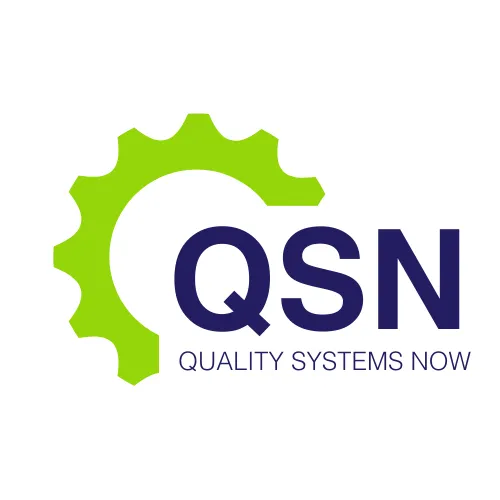LATEST NEWS

Quality Management Systems in Support of Business as Usual (BAU)
A Quality Management System (QMS) is an essential framework in regulated industries, particularly in the pharmaceutical, biotechnology, and medical device sectors. Its primary function is to ensure that products and processes meet predefined standards of quality, safety, and efficacy.
Beyond regulatory compliance, a robust QMS supports "Business As Usual" (BAU) by seamlessly integrating with various facets of business operations, including business change management, regulatory change management, training, system updates, and audit preparedness. This article delves into how a QMS underpins these critical areas, ensuring continuity, compliance, and improvement within an organization.
Business Change Management
Business change management involves the systematic approach to dealing with the transition or transformation of an organization's goals, processes, or technologies. A QMS plays a pivotal role in this area by providing structured methodologies for managing changes without compromising quality or compliance. Key components include:
Change Control Procedures: A QMS incorporates rigorous change control procedures that document, evaluate, and approve changes before implementation. This ensures that any alteration to processes, equipment, or systems is thoroughly vetted for potential impacts on product quality and compliance.
Risk Management: Integrated risk management processes within the QMS identify, assess, and mitigate risks associated with business changes. By systematically analyzing potential hazards and implementing control measures, the QMS helps maintain the integrity of operations during transitions.
Documentation and Traceability: Comprehensive documentation is a cornerstone of QMS, ensuring that all changes are well-documented, traceable, and auditable. This transparency facilitates smooth transitions and provides a clear audit trail.
Regulatory Change Management
Regulatory landscapes are continually evolving, necessitating that organizations adapt swiftly to new requirements. A QMS supports regulatory change management through:
Regulatory Intelligence and Monitoring: QMS frameworks often include mechanisms for continuous monitoring of regulatory updates and trends. This proactive approach ensures that organizations are aware of and can prepare for impending changes.
Compliance Gap Analysis: When new regulations are introduced, a QMS enables the performance of compliance gap analyses to identify areas where current practices fall short of new requirements. This analysis informs the necessary adjustments to policies, procedures, and practices.
Implementation and Validation: Following the identification of compliance gaps, a QMS guides the implementation of changes and the validation of processes to ensure they meet new regulatory standards. This might involve updating standard operating procedures (SOPs), retraining staff, or modifying equipment and facilities.
Training
Effective training programs are critical to maintaining compliance and ensuring that staff are proficient in their roles. A QMS enhances training initiatives by:
Training Needs Assessment: Through periodic assessments, a QMS identifies training needs based on job roles, regulatory requirements, and performance metrics. This targeted approach ensures that training efforts are relevant and impactful.
Training Program Development: The QMS framework supports the development of comprehensive training programs that encompass initial training for new hires, ongoing training for existing employees, and refresher courses to keep staff updated on new processes and regulations.
Training Documentation and Records: A QMS ensures that all training activities are meticulously documented. Training records are maintained to demonstrate compliance during audits and inspections, providing evidence that employees are adequately trained and competent.
Updates to the Quality Management System
The QMS itself must evolve to remain effective and compliant. Systematic updates are managed through:
Periodic Reviews: Regular reviews of the QMS are conducted to assess its performance and identify areas for improvement. These reviews ensure that the system remains aligned with organizational goals and regulatory requirements.
Continuous Improvement: A QMS fosters a culture of continuous improvement (CI) by encouraging feedback from stakeholders, conducting internal audits, and analyzing performance data. This iterative process leads to ongoing enhancements in the QMS.
Change Management within the QMS: Updates to the QMS are managed through structured change management processes, ensuring that modifications are planned, implemented, and validated without disrupting ongoing operations.
Audit Preparedness
Being prepared for audits is a critical aspect of maintaining compliance and demonstrating quality. A QMS enhances audit readiness by:
Audit Planning and Scheduling: A QMS includes mechanisms for planning and scheduling internal and external audits. This ensures that audits are conducted systematically and at regular intervals.
Self-Inspection and Internal Audits: Regular self-inspections and internal audits are integral to a QMS. These proactive assessments help identify and rectify non-conformities before external audits, thereby improving overall compliance.
Corrective and Preventive Actions (CAPA): The CAPA system within a QMS addresses issues identified during audits. By implementing corrective actions to rectify current problems and preventive actions to avoid future occurrences, the QMS helps maintain a state of continuous compliance.
Audit Trails and Documentation: Comprehensive documentation maintained by the QMS provides clear audit trails. This transparency is crucial during audits, as it allows auditors to trace processes and verify compliance with regulatory standards.
Have a chat to us about how we can help you on your journey to a business as usual friendly Quality Management System.
A Quality Management System is indispensable for supporting "Business As Usual" in regulated industries. It provides the structure and processes necessary to manage business and regulatory changes, enhance training programs, update quality systems, and ensure audit preparedness. By integrating these elements, a QMS not only helps organizations maintain compliance but also drives continuous improvement, operational efficiency, and product quality. Through diligent application of QMS principles, organizations can navigate the complexities of regulatory landscapes while maintaining a steady course towards their strategic objectives.
